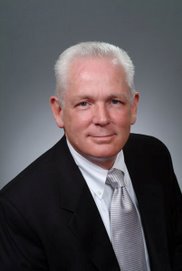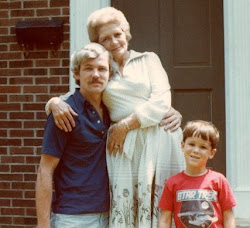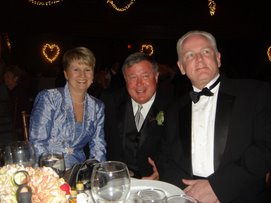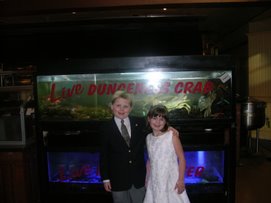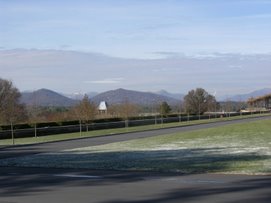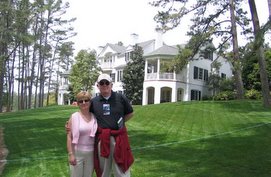Reflections on a Winter Day
I was sitting in the West Midlands of England just before the New Year, enjoying the tranquility of my wife's parents home, and was drawn into a period of reflection about the year that had nearly finished. Overall, it was a very positive year, especially with respect to my career, which has improved dramatically since I joined Market Force in the Fall of 2008 as a Sales Consultant tasked with improving the sales environment and driving significant improvement in the acquisition of new business and the retention of the existing base of customers. In April of 2009 I accepted a full time position as the SVP of Sales along with what I perceived at the time to be a fairly stiff sales target, especially given the team's 2008 performance and the changes I had made during the previous six months.
Well, we blew through the Board target before Thanksgiving and the Team target in early December. The final numbers put us significantly over target for the year with a very healthy pipeline of new business opportunities entering 2010. All in all, it was an amazing performance turned in by a very talented group of professional sales associates, ranging from young and relatively inexperienced to highly seasoned. There are of course a few superstars, but what would a sales organization be without some superstars?
So how did I manage this stunning turnaround? Good question! Unfortunately, there isn't a simple answer. Is there ever? Changing the fortunes of a sales team that has experienced several years of less than stellar performance coupled with a number of changes in the Sales Leadership position doesn't happen overnight. Change takes a subtle mix of aggression and patience; knowing when to makes moves related to personnel, compensation, sales targets, metrics, and all the other swirling pieces of the sales puzzle.
How do you know when to push one button versus another? Sorry, I can't give you a blueprint because Sales Leadership is an acquired skill - acquired after years of getting it wrong more often than right; after working with the best and sometimes the worst; but most often you're surrounded by people who are completely out of place........people who simply don't have the talent or the passion to "carry a bag" (sales speak for being a quota-bearing sales person)...........why do otherwise very talented people allow themselves to fall into jobs that they dislike and can't ultimately get their minds around?
Okay, back to the original thrust of this dialogue; i.e.: how do you create a successful sales organization? I'm not being coy when I say that the answer is complex and the details of each success are as different as the fingerprints on your hand.
You start with talent.....everything follows talent. Like the man said: "you have to have the right people on the bus." Don't underestimate the importance of securing the most talented team you can find, keeping in mind that not all talent comes fully baked on day one. At the same time, some folks need to be helped to understand that a bad fit is a bad fit and change for them is an immediate priority, both theirs and yours! Don't spend a lot of time fighting your intuition....make the changes that feel right and move on with all the other important issues that lie ahead.
Once you've selected your team, lay out the metrics. Metrics are the key to building any successful team. Measuring every aspect of sales performance from the outbound activities through sales closure - what we affectionately call the "Waterfall" - is the next most critical step in shaping the team. Establish standards for performance, coach the team to those standards (the entire team), and track and measure relentlessly. Good things come out of metrics! Trust me on this one. There isn't one successful Sales Leader out there who doesn't apply standards for sales performance, establishes metrics to track those standards, and drives his/her team towards exceeding those standards each and every day.
Okay, so you have the folks in place that set the stage.........you have established solid metrics and have the tracking mechanism in place to consistently and accurately gauge performance. Now is the time to find a training partner, someone who will work closely with you to tailor a training curriculum that focuses on your team's performance needs, and not some off the shelf program that's designed for the masses. Establishing standards of performance requires a framework that the entire team understands and adopts. What's the best sales performance training program? It's the one you select, you reinforce on a daily basis, and you embed in your organizatinal DNA..........you stick with it when everyone wants to introduce their favorite training partner to you.
I'm quite fond of a firm in Dallas, Texas - Acclivus Corporation - and one of their top independent consultants, Charles Gottenkieny. I've been working with Charles and Acclivus for over twenty years and I've established a relationship based upon trust and results. We've worked across multiple organizations and we've had various degrees of success, but our results thus far at Market Force certainly rank at the very top. I won't go into the details of everything we've done over the past year, but suffice it to say that finding your trusted training partner is another critical element in building a successful sales organization.
Let's see: A talented team; Standards, Metrics, Tracking; a well laid out sales training curriculum.........what else is needed?
For me, it's the environment, or what many folks fondly refer to as the "Sales Culture." Building a sales culture that celebrates success, that is geared towards success, and fundamentally leads the business every single day is the most important role for the Sales Leader. Sales professionals operate at maximum efficiency when they are placed in an environment designed to support their success. The sales compensation plan needs to be an integral part of that environment; i.e.: you pay people to be successful and you don't begrudge them those earnings. This is one area where don't want to be frugal. Fairness and honesty are also equally important. The key is establishing a reputation for paying for success, which will serve the organization in multiple ways, but especially in your new talent acquisition efforts.
Recognition is another massively important element in the mix. Sales professionals are by nature egotistic. They crave recognition and it is the Sales Leader's role to ensure that recognition is forthcoming. People often talk about the sales hero's within their firms, but how often do they, or you, treat them as hero's?
This brings us to another key point. What is the role of the Sales Leader? First and foremost, the Sales Leader is charged with creating the Sales Culture. He/She is primarily responsible with creating an environment wherein selling happens and is celebrated. It is not his or her job to assume the role of the hero. The best Sales Leaders that I know are relatively modest folks. They shamelessly promote their superstars, quietly coach their under-performers, and constantly strive to stand between their team and any organizational issues that might impede the ongoing success of the team. It's surprising how many organizations create sales barriers! The Sales Leader needs to be the filter that screens the sales organization from all the noise and distractions and allows the sales professionals to focus on closing new business, which is what they are paid to do. A bit of advice here - if you find that your sales team is spending less than 90% of their time engaged in core sales activities; i.e.: prospecting, business development, and closing, then stop what you are doing and reassess everything. Sales should not be doing the marketing function, nor should they be editing contracts or writing operational briefs. Focus your sales professionals on selling!
Beyond these four foundation strategies there are an endless array of collateral strategies and tactics that can be applied depending upon your individual circumstances. But get these big four right and you exponentially increase your opportunity for creating a successful sales organization.
So, let's recap:
1. Start with the best talent.
2. Set performance expectations by defining the right metrics, establishing measurements and a mechanism for consistent and accurate tracking.
3. Find a solid sales performance training partner and create a tailored program for your team. Then implement that program with commitment and enthusiasm.
4. Finally, establish a sales culture that rewards performance and keeps the sales team focused on selling and pushes everything unrelated to new business acquisition to one side.
This folks is my recipe for success. Thus far it has served me well. Market Force has just experienced a banner year and if January is any indication, then 2010 is going to continue down that path. Oh there will certainly be new challenges, including the higher expectations that follow any successful year. We will also want to continue to find new ways to delight our existing clients, ensuring that they not only remain with us in 2010, but also grow as we continue to innovate and develop new methodologies for measuring and understanding the discipline of "Customer Experience"

